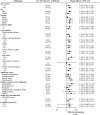Colonization With Extensively Drug-Resistant Acinetobacter baumannii and Prognosis in Critically Ill Patients: An Observational Cohort Study
- PMID: 33996866
- PMCID: PMC8119758
- DOI: 10.3389/fmed.2021.667776
Colonization With Extensively Drug-Resistant Acinetobacter baumannii and Prognosis in Critically Ill Patients: An Observational Cohort Study
Abstract
Background: Acinetobacter baumannii is one of the most frequently isolated opportunistic pathogens in intensive care units (ICUs). Extensively drug-resistant A. baumannii (XDR-AB) strains lack susceptibility to almost all antibiotics and pose a heavy burden on healthcare institutions. In this study, we evaluated the impact of XDR-AB colonization on both the short-term and long-term survival of critically ill patients. Methods: We prospectively enrolled patients from two adult ICUs in Qilu Hospital of Shandong University from March 2018 through December 2018. Using nasopharyngeal and perirectal swabs, we evaluated the presence of XDR-AB colonization. Participants were followed up for 6 months. The primary endpoints were 28-day and 6-month mortality after ICU admission. The overall survival rate was estimated by the Kaplan-Meier method. We identified risk factors associated with 28-day and 6-month mortality using the logistic regression model and a time-dependent Cox regression model, respectively. Results: Out of 431 patients, 77 were colonized with XDR-AB. Based on the Kaplan-Meier curve results, the overall survival before 28 days did not differ by colonization status; however, a significantly lower overall survival rate was obtained at 6 months in colonized patients. Univariate and multivariate analysis results confirmed that XDR-AB colonization was not associated with 28-day mortality, but was an independent risk factor of lower overall survival at 6 months (HR = 1.749, 95% CI = 1.174-2.608). Conclusions: XDR-AB colonization has no effect on short-term overall survival, but is associated with lower long-term overall survival in critically ill patients.
Keywords: Acinetobacter baumannii; colonization; extensively drug resistant; infection; intensive care unit.
Copyright © 2021 Zheng, Xu, Pang, Han, Yang, Qin, Zhang, Li, Wang and Chen.
Conflict of interest statement
The authors declare that the research was conducted in the absence of any commercial or financial relationships that could be construed as a potential conflict of interest.
Figures


References
-
- Chinese XDRCWG, Guan X, He L, Hu B, Hu J, Huang X, et al. . Laboratory diagnosis, clinical management and infection control of the infections caused by extensively drug-resistant Gram-negative bacilli: a Chinese consensus statement. Clin Microbiol Infect. (2016) 22(Suppl. 1):S15–25. 10.1016/j.cmi.2015.11.004 - DOI - PubMed
LinkOut - more resources
Full Text Sources
Other Literature Sources

